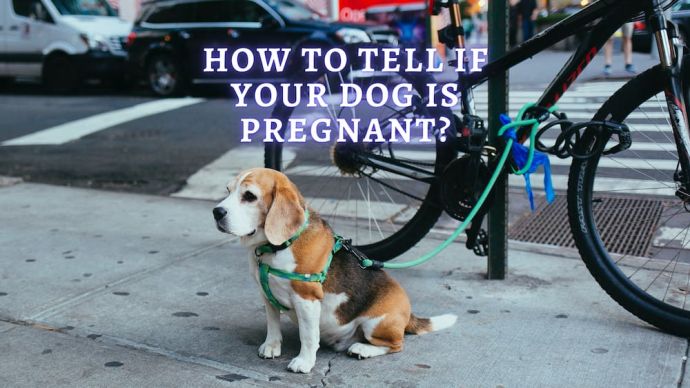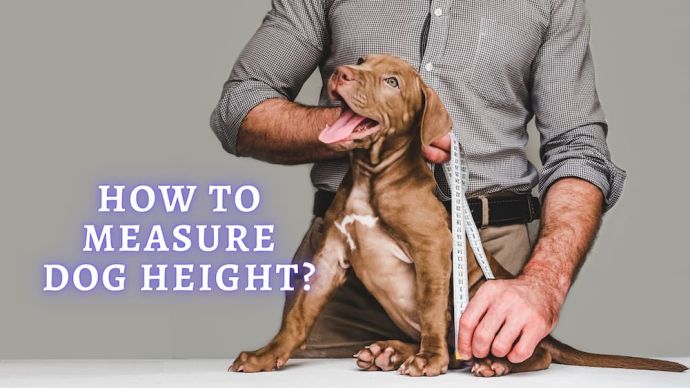Dog Gagging: Why Does My Dog Keep Gagging But Not Throwing Up?
Written by:
Author: Carol Young
Carol has worked in specialty, emergency, mixed animal and general veterinary practices, and enjoys all aspects of veterinary medicine. Her special areas of interest include anesthesia, critical care, emergency, dentistry, internal medicine and small animal nutrition.
View all 62 articlesLearn about our editorial process and veterinary review board.
Viewed: 237
Updated on: 12/28/2022
Dogs occasionally gag, and sometimes this behavior is nothing to worry about. Still, it is essential to recognize the signs and other symptoms of more serious medical conditions that can cause gagging. There are several causes for it, which can also be accompanied by coughing, regurgitation, and vomiting. Although some cases may resolve independently, some may require a visit to your veterinarian.
What is Gagging?
Gagging occurs when a pet stretches out her neck and opens her mouth to get rid of irritants in the esophagus, trachea, or pharyngeal region. Other symptoms include a hacking sound, extending their neck out repeatedly, licking their lips, and/or swallowing after it. Sometimes gagging will produce phlegm, bile, or a foreign object such as a blade of grass, and other times will produce nothing. In most cases, it may resolve independently, but in others, it can be a sign of a more serious medical issue.
The Difference Between Dog Gagging, Coughing and Vomiting, and Why It’s Important?
Gagging and a dog’s cough can sound similar but slightly different. Gagging is characterized by dry heaving, or the attempt to vomit, while coughing is more like forcing air from the throat or mouth. When a dog gags, the pet may open its mouth wide and make a retching sound. Sometimes a small amount of mucous or phlegm will be coughed up, and it rarely leads to vomiting.
It’s essential to recognize the difference between gagging, coughing, and vomiting because it can help you and your veterinarian diagnose the cause. For example, if your pet is actively vomiting, it could be a sign of gastrointestinal issues, an obstructive foreign body, or pancreatitis. It may be a symptom of kennel cough, laryngeal paralysis, or GDV. If your pet is coughing, it may be a sign of heart disease, asthma, upper airway irritation, or obstruction.
If your pet is having difficulty breathing, contact a veterinarian immediately. Your veterinarian will be able to diagnose and hopefully treat the underlying cause.
READ MORE: Why is my dog breathing fast?
Why is my dog gagging?
There are several reasons, some are not worrisome, and others can be a sign of something quite serious.
- Laryngeal paralysis. This condition occurs when a dog’s larynx (windpipe) cannot open correctly when she breathes in, causing difficulty getting enough oxygen. Laryngeal paralysis is a common form of upper airway obstruction usually seen in middle-aged to older pets and tends to affect larger breeds. Gagging followed by a dry, rough cough is a common symptom of this condition.
- Pharyngitis. Sometimes a dog’s pharynx can become inflamed and swollen, which often happens in brachycephalic pets with short faces, such as pugs or bulldogs. The inflammation can be caused by irritation or other physiological factors, leading to coughing, or loud breathing.
- Kennel Cough. Kennel Cough, orcanine infectious tracheobronchitis, is a very contagious respiratory disease caused either by a virus or a bacterium. Common symptoms include a loud honking cough or retch, and ins some cases sneezing, a runny nose, and eye discharge. In more severe cases, kennel cough can result in pneumonia, decreased appetite, lethargy, and fever. If you are concerned about your dog getting kennel cough, ask your veterinarian about the vaccine for this disease.
- Canine influenza. Canine influenza, or pet flu, is a contagious respiratory disease caused by a specific Type A influenza virus. The signs of this illness include a runny nose, eye discharge, fever, and a cough. Along with kennel cough, dog flu can be contracted at dog parks and in boarding kennels, and immune-compromised dogs and senior dogs can be susceptible if not vaccinated.
- Respiratory Infections. Infection. Upper respiratory infections can cause a pet to gag and/or cough. Untreated bacterial infections, such as Bordetella bronchiseptica, can progress and cause inflammation of the bronchi and lungs, leading to pneumonia in serious cases. Respiratory infections can cause dog coughing.
- Pneumonia. This condition occurs when the bronchioles in a dog’s lungs become inflamed or filled with bacterial discharge and fluid. This, in turn makes for trouble breathing, causing the dog to gag or cough when trying to breathe.
- Megaesophagus. In the megaesophagus, pets can’t swallow food normally because their esophagus lacks the muscular tone to move food and water into the stomach. The esophagus is dilated, and since the food can’t empty properly into the stomach, the food backs up, causing regurgitation. This condition can be congenital and also appears in older dogs with neurological issues.
- Parasites. Intestinal worms and parasites such as roundworms can move from the intestines to the bronchioles and air sacs in the lungs, causing the dog to gag and a dogs cough. These parasites cause irritation to the lungs and trachea, causing your pet to gag.
- Foreign body. If a dog gets something stuck in her throat, such as a blade of grass or an object, this can lead to gagging and coughing. In serious cases, it can lead to choking and blockage of the airway (which is an immediate medical emergency).
- Heart disease. Heart conditions such as chronic heart disease or acute heart disease can also cause dogs to gag and cough. In most cases fluid collects around the heart and in the lungs, making it hard for the dog to breathe, resulting in gagging to expunge the accumulated fluid.
- Heartworm disease. This condition is caused by a parasite (Dirofilaria immitis) that attacks the heart, causing severe lung disease, heart failure, and other organ damage in pets.
- Gastroenteritis. This condition involves the inflammation of the gastrointestinal tract, and in some cases can cause gagging, especially after eating or drinking.
- Tumors. Any unusual growths in the pharynx, such as a polyp or tumor, can block a dog’s breathing and lead to gagging. If you suspect that your pet has a growth in her throat, contact your veterinarian.
- GDV (Bloat). GDV (Gastric Dilatation-Volvulus) is when the stomach becomes twisted, and gas, food, and fluid cannot escape. Symptoms of this condition include constant gagging and attempts to vomit, a swollen stomach, drooling, and weakness. GDV is an immediate medical emergency and results in death if not treated right away by a veterinarian.
What to do if my dog is gagging?
When it comes to dogs gagging, ensure that she can still move air and oxygen to her heart and lungs. An excellent way to test for this is to check her gums and look at your dog’s mouth: The gums and tongue should be pink and moist. Dogs occasionally gag, and in most cases, it will resolve independently. If the gagging stops after a minute or two, monitor her for other signs, such as panting, coughing, or vomiting. If the gagging does not resolve, contact your veterinarian; it could signify something more serious.
RELATED: Why Is My Dog Panting At Night?
When Should I Be Concerned About a Dog Gagging?
The number one concern with a gagging dog is potential airway obstruction. If your dog is gagging but is still able to move air, monitor closely. If your pet is gagging and having a hard time breathing, that is an immediate medical emergency. If you are concerned about your dog gagging, contact your veterinarian.
People also ask:
Why is my dog gagging, but nothing comes out?
If your dog is gagging and nothing is coming out, it could be due to several reasons. Monitor your pet for signs of GDV (an immediate medical emergency), such as a swollen abdomen, drooling and abdominal pain, or for a possible foreign body or airway obstruction. If your pet is breathing normally but gagging, the condition may resolve on its own, but if you are concerned, contact your veterinarian.
Why is my dog gagging without coughing?
Dogs may often gag without coughing, especially if they have a bit of dietary reflux, pharyngeal irritation, or irritation to the dog’s throat. As mentioned above, when a dog gags she will open her mouth fairly wide and make a retching sound, but nothing but mucous or phlegm will be eliminated. If you are concerned about this, seek medical help as soon as possible.
Why is my dog gagging like he has a hairball?
Sometimes a canine’s pharynx will become irritated by dust, a foreign body, or some other irritant. In these cases, it may look and sound like they coughing up a hairball (which is common in cats). However, in cats coughing up hairballs is typically followed by vomiting. Although there are similarities, gagging does not necessarily lead to vomiting.
What should I do if my dog is gagging?
If your dog is gagging and has not been resolved immediately, seek veterinary help immediately. Your veterinarian can check for foreign objects and irritants, remove them safely, and run diagnostic tests for other causes, such as heart disease or GDV. Your veterinarian can recommend an appropriate treatment plan if your dog’s gagging is a medical condition symptom.
 Cat Care Veterinary Telemedicine: How telemedicine can help manage chronic conditions in pets?
Cat Care Veterinary Telemedicine: How telemedicine can help manage chronic conditions in pets? - 547
- 0
 Dog Veterinary Tips Why is my Dog throwing up: Causes and Preventing (Veterinary Advice)
Dog Veterinary Tips Why is my Dog throwing up: Causes and Preventing (Veterinary Advice) - 21356
- 5
 Dog Care My Dog Keeps Scratching His Mouth: Reasons Why Your Dog Scratching Face
Dog Care My Dog Keeps Scratching His Mouth: Reasons Why Your Dog Scratching Face - 16545
- 1


























